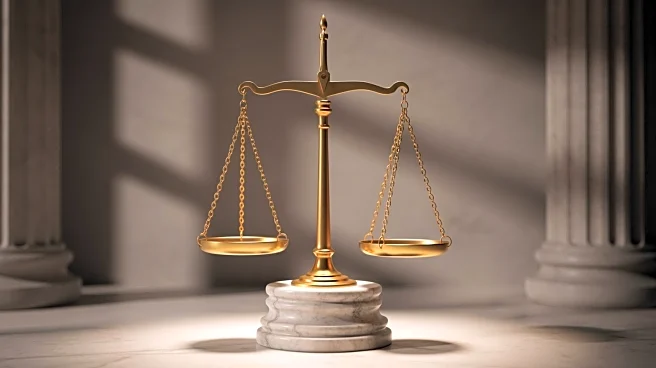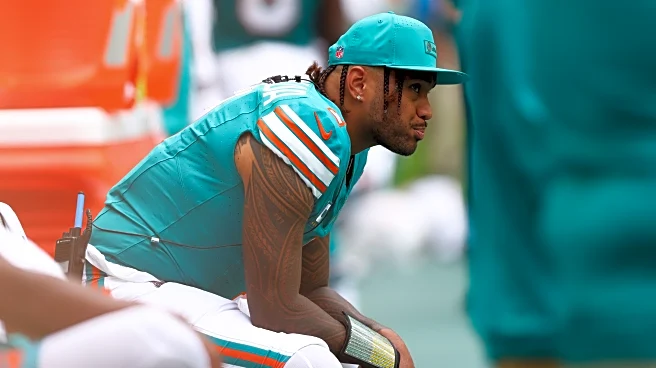What's Happening?
Former French President Nicolas Sarkozy has been released from prison after a Paris court ruled that he could be freed pending an appeal of his September conviction for criminal conspiracy. Sarkozy was
convicted for his involvement in a scheme to finance his 2007 presidential campaign with funds from Libya in exchange for diplomatic favors. During a court appearance via videolink, Sarkozy described his 20 days in prison as 'very hard.' Prosecutors requested that Sarkozy be released under judicial control, with restrictions on whom he can contact. The court specified that Sarkozy is forbidden from contacting individuals implicated in his case, as well as the current French Justice Minister Gerald Darmanin, who faced public scrutiny for visiting Sarkozy in prison in October.
Why It's Important?
The release of Nicolas Sarkozy pending appeal is significant as it highlights ongoing legal challenges faced by former high-ranking officials and the complexities of international political finance. Sarkozy's case underscores the scrutiny and legal consequences that can arise from alleged misuse of campaign funds and diplomatic influence. The decision to release him under judicial control reflects the balance between ensuring legal accountability and respecting the rights of individuals awaiting appeal. This development may influence public perception of political integrity and judicial processes in France, potentially affecting future political dynamics and trust in governmental institutions.
What's Next?
As Sarkozy awaits his appeal, the legal proceedings will continue to attract attention both domestically and internationally. The restrictions placed on Sarkozy, including limitations on his contacts, suggest that the court is taking measures to prevent any interference with the ongoing legal process. The appeal outcome will be closely watched, as it could either uphold or overturn the conviction, impacting Sarkozy's political legacy and future involvement in public affairs. Additionally, the case may prompt discussions on campaign finance regulations and diplomatic ethics, influencing policy reforms in France and potentially other countries.
Beyond the Headlines
The case of Nicolas Sarkozy raises broader questions about the ethical standards expected of political leaders and the mechanisms in place to enforce accountability. It highlights the challenges in balancing political influence with legal integrity, especially in cases involving international finance and diplomacy. The scrutiny faced by the French Justice Minister for visiting Sarkozy in prison also points to the delicate nature of political relationships and the importance of maintaining transparency and impartiality in legal matters. This situation may lead to increased calls for reforms in political finance laws and diplomatic conduct.









